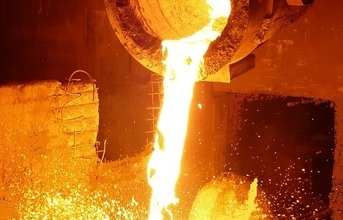
“To mark our journey towards Atmanirbhar Bharat and Vocal for Local, it is important to continuously innovate our product portfolio and production techniques to not only be competitive globally but also to have quality products available domestically," Kulaste said
Faggan Singh Kulaste, MoS for Steel, Govt of India, has said that the Secondary steel sector will play an important role in achieving the 300 million tonne target of steel capacity by 2030-31, as laid out in the National Steel Policy-2017. "It is important that raw materials like iron ore, etc., should be made available to the industry to meet the target," he added.
Addressing the webinar on Secondary Iron & Steel Industry: Ecosystem, Opportunities & Challenges, organized by FICCI and SRTMI, Kulaste said that India is the second largest steel producer in the world and is positioned to offer a lot of opportunities for the steel sector.
"To mark our journey towards Atmanirbhar Bharat and Vocal for Local, it is important to continuously innovate our product portfolio and production techniques to not only be competitive globally but also to have quality products available domestically," he said.
Elaborating on the policy initiatives, Kulaste said that the ministry has come up with a Draft Framework Policy for the development of Steel Clusters to meet the steel demand of 255 MTPA by 2030 with per capita consumption of 160 kg.
"The policy will focus on creating an eco-system for the development of secondary steel and steel ancillary units. Under this initiative, the MSMEs in the steel sector will be encouraged to produce value-added steel products," he added.
Kulaste further stated that the steel cluster will be region- defined with ancillary and secondary steel units around the steel producers to ensure availability of raw materials. "It will help the units improve their cost competitiveness, logistics efficiency, and production quality. This, in turn, will drive self-sufficiency and generate employment opportunities for the locals around the clusters," he noted.
Highlighting the concerns of the industry, Mr Kulaste assured of the government's support. "There are some issues that the secondary steel sector is facing, like the availability of main raw material iron ore, differential electricity rates in various states, etc. I assure you that the ministry is looking into all issues to ensure that contribution of the secondary sector is further strengthened," he added.
Anbalagan P, Secretary, Mineral Resources Department, Government of Chhattisgarh, stated that the state government has taken significant policy initiatives to eliminate procedural hindrances along with creating a conducive environment for entrepreneurship and industrial development. "Iron ore is yet to reach its peak capacity and there is still a lot of requirement, in terms of govt policies, in the sector. Further activities will be taken up and we hope to put, at least, 1-2 mines at the composite level by next year," he added.
VR Sharma, Co-Chair, FICCI Steel Committee said that more than 40 per cent of steel comes from the secondary steel industry in India. "With the introduction of scrap recycling policy in the future, the contribution from secondary steel will further rise." He further stated that the biggest reform required in the country is that of 'One Bharat, One Tariff'. "We need a uniform tariff for the country and urged the government to support the industry," he added.
Satyam Prakash, Director Rail Movement, Railway Board, Indian Railways, Government of India said that the primary raw material for the steel industry is bulk material, the transport for which is always arduous. "More than 80 per cent of logistics for the Iron & Steel industry is met through the rail network. The Indian Railways has taken various initiatives to support the steel industry," he added.
Dr Mukesh Kumar, Director, SRTMI; Mr Sridhar Krishnamoorthy, MD, Arjas Steel and Mr Prakash Tatia, Senior Member, FICCI Steel Committee & Director, Welspun Specialty Solutions Ltd., also shared their perspectives on the potential of Secondary Iron and Steel Industry in the country.
END



























